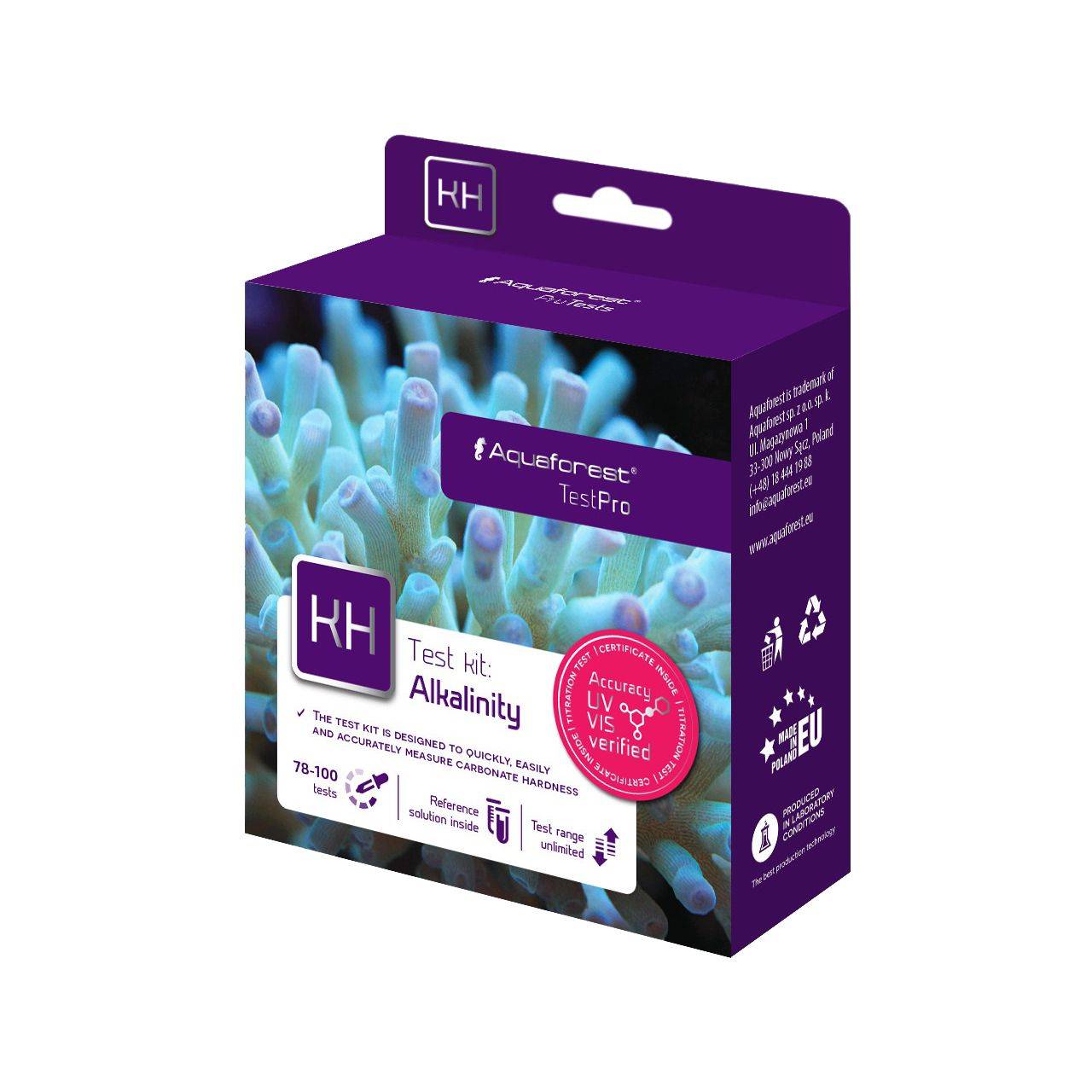Description
The ability to keep Alkalinity stable is one of the foundations of reefing success. Without appropriate and stable levels of Alkalinity it is almost impossible to keep stony corals healthy long term. In addition, fluctuating or incorrect levels of Alkalinity can lead to problems such as dinoflagellates and cyanobacteria. So, if Alkalinity is so important how can reefers test for it? One highly effective test kit is the Aquaforest Alkalinity Test Pro. This straightforward test will measure the concentration of carbonates and bicarbonates in reef tanks. These are the ions that are consumed by corals as they grow their stony skeletons. In general, it is recommended that reef tanks be kept at an Alkalinity of between 7dKH and 9dKH, although stability is just as important as the actual reading. Regular testing of the aquarium water will allow the hobbyist to calculate the consumption rate of Alkalinity and calibrate dosing, if necessary. For reefers who plan to keep any sort of stony corals in their tanks, a regular testing schedule is a prerequisite for success.
These test kits work on the common titration method. In this method, a specific amount of reagent is added to a sample of aquarium water and mixed gently. A second reagent is added slowly from a syringe until the sample changes colour. The amount of the second reagent that is needed to achieve this colour change indicates the level of Alkalinity in the water. Aquaforest test kits contain enough reagents for between 75-100 tests, depending on the amount of sample water used.
It is generally recommended that Alkalinity be tested weekly in established tanks and more often in newer tanks, so a single Aquaforest test kit can last well over a year. Considering the value of corals that many reefers keep in their tanks, the purchase of a reliable test kit, such as the Aquaforest Alkalinity Pro, makes a worthwhile investment.


